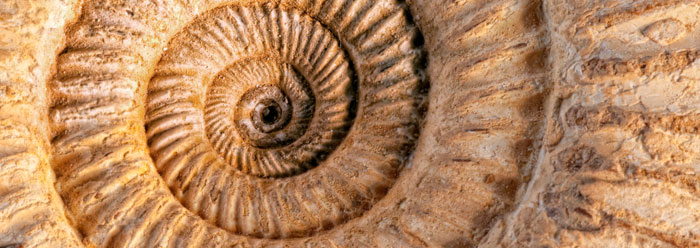What a man does with the fossil record tells a lot about his worldview. Is it the result of a world-covering deluge? Or did this sorry chronicle of pain, suffering, and death precede humans (and the reign of death) by millions of years? A lot hangs on this question. Defending the goodness of God in a world full of suffering is a difficult job. The job is made nigh unto impossible if we place at God's feet the carnage of the fossil record.
Try to imagine God standing on His newly created Earth and calling it "very good" when under his feet lay the ruined remains of former life forms buried in various positions of agony and stages of decay. Yet all Christians who believe in an old Earth must embrace this picture. Some defend it by claiming we Americans get too sentimental over animals; only human suffering matters. Others say human suffering is, in itself, a "good" thing. Most ignore it. With the growing rise of Gnosticism, however, the question will surely not be going away soon.
Gnostics, like most religious people, have well-developed ideas on creation, "fall," and redemption. Creation to a Gnostic begins with an impersonal and vague primal god that "emanates" a few dozen deities of whom Sophia ("wisdom"), the earth goddess, is foremost. She gives birth to Jehovah and things begin to go wrong. Jehovah creates a corrupt Earth that from the start was full of suffering, pain, and death yet who attempted to pass it off as "good." Adam and Eve, having developed through Jehovah's cruel method of evolution, are also corrupt, yet they and their offspring retain a "divine spark." Only by accepting the Serpent's offer of knowledge (Gnosis) can man escape the cruel designs of Jehovah and evolve according to the promise, "ye shall be as gods." The Serpent becomes the hero. A rite of initiation among some modern Gnostics is to ritualistically eat an apple in open rebellion against their Creator.
The point is this. The Gnostic's point of departure, which is evident on any of their websites, is that only an evil god would deliberately create a world in which physical suffering is so central to his program. They feel the brunt of this more acutely than most Christians.
For three reasons I commend the Gnostics. First, they are to be commended for understanding evolution better than the Darwinists do. For man to advance to his next evolutionary stage, Gnostics see the need for information. Darwinists are utterly blind to this. Second, I commend Gnostics for their consistency. Today's animal economy, based upon "survival of the fittest," rewards cunning brutality, and predation. Young Charles Darwin felt that a god who ordained such an economy from the start is not the kind of god he was inclined to worship (and I agree). Third, I commend the Gnostics for bringing to light an issue that we ignore at our peril—the origin of physical suffering and death (human and animal).
Theistic evolutionists, progressive creationists, and all Christians who believe in an old Earth have this in common: they see in the fossil record a saga of millions of years of death, physical suffering, and bloodshed of animals that preceded Adam. In embracing this, they have no credible answer for human suffering and give fuel to the Gnostics. God's goodness must be defended. An event after the Fall sufficiently accounts for the fossil record. That event was the Genesis Flood.
* William A. Hoesch, M.S. geology, is Research Assistant in Geology at ICR.




